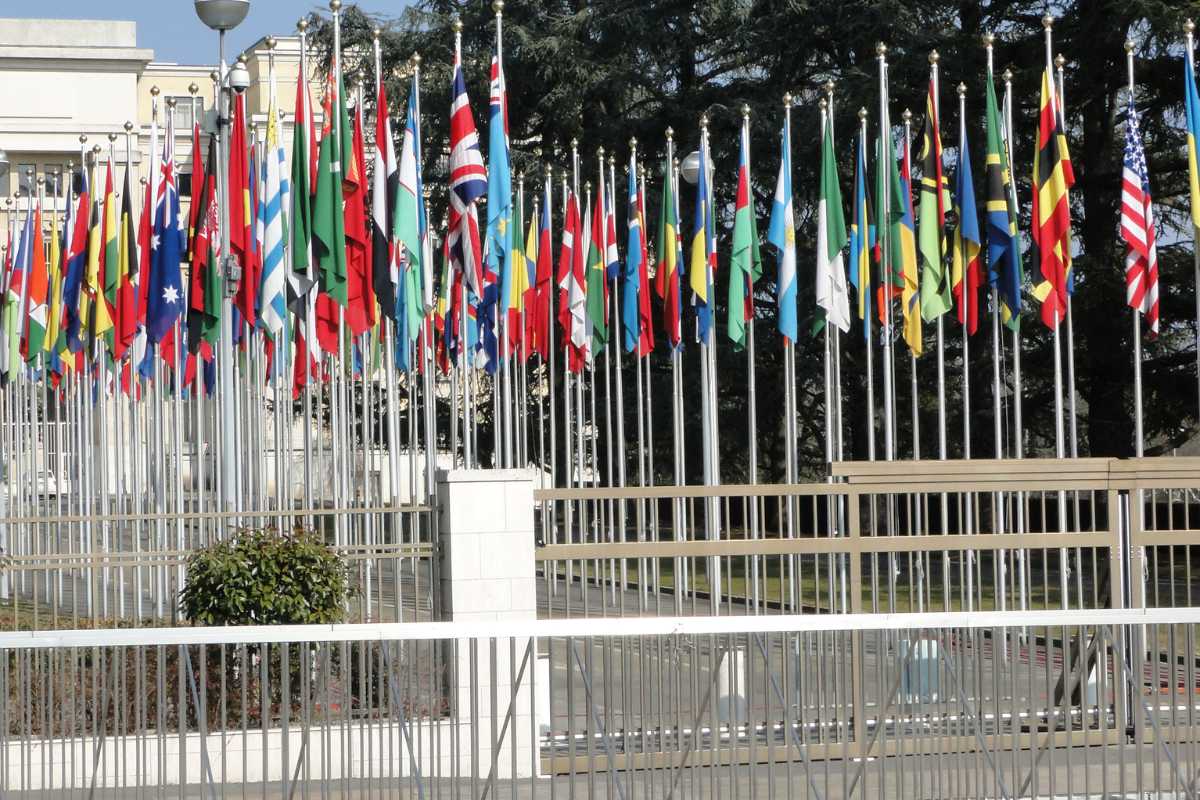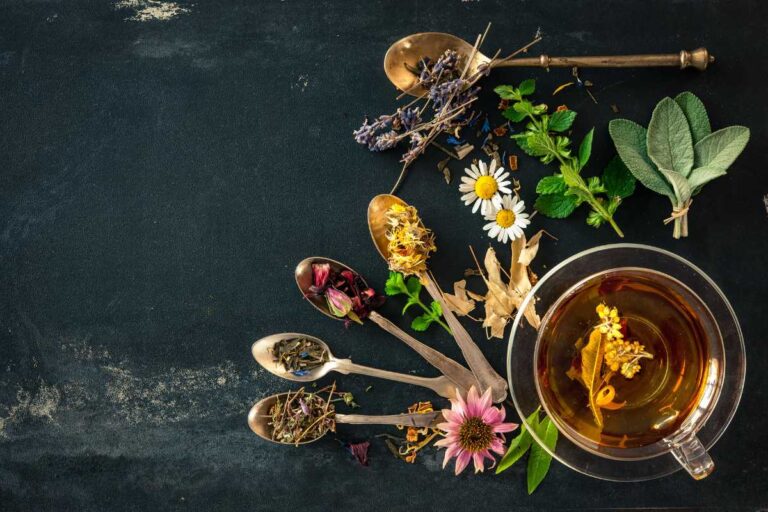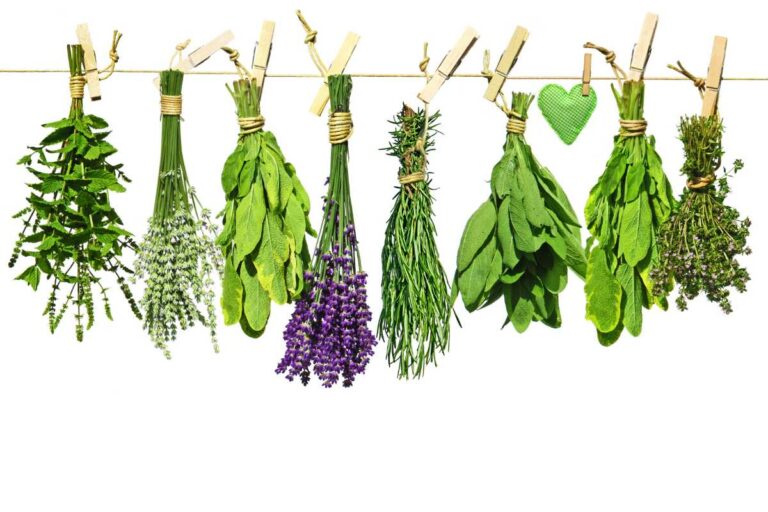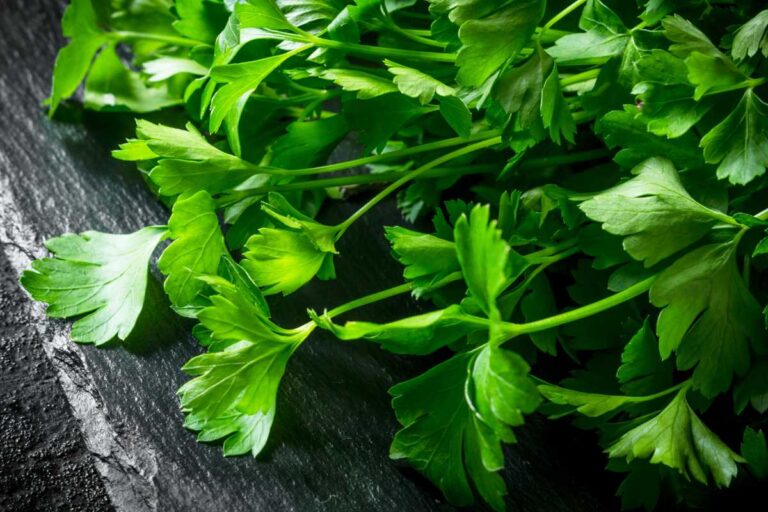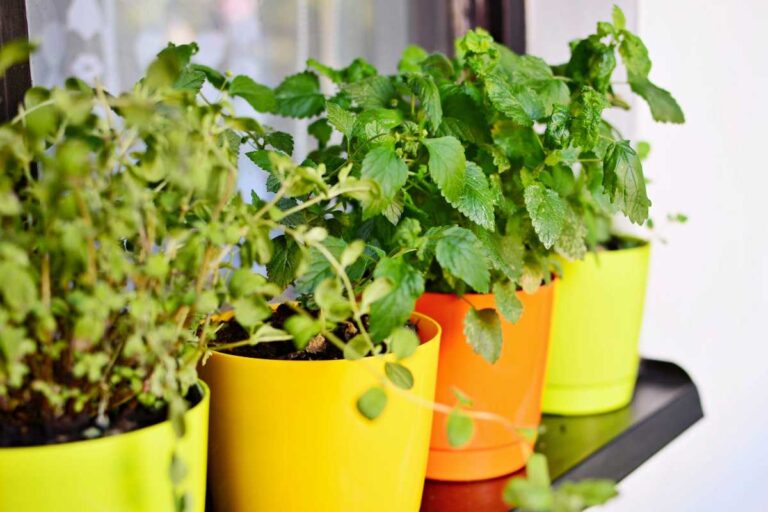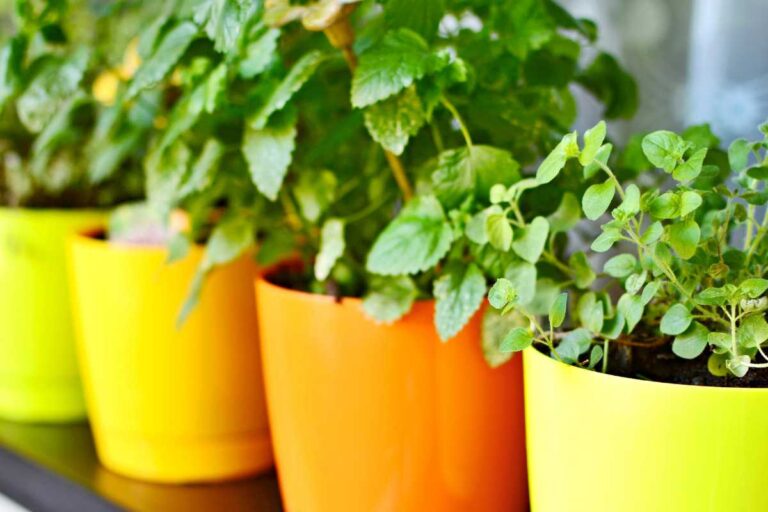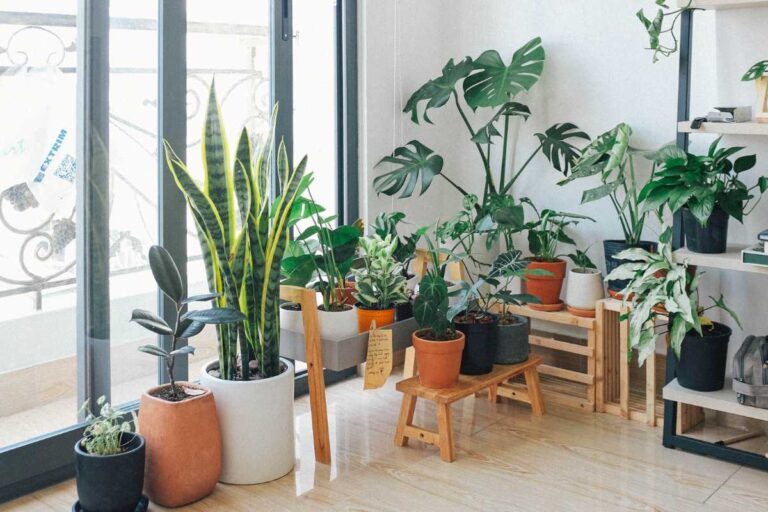Which Country Is Rich in Herbs? A Global Comparison of Herb-Abundant Nations
Which Country Is Rich in Herbs? A Global Comparison of Herb-Abundant Nations
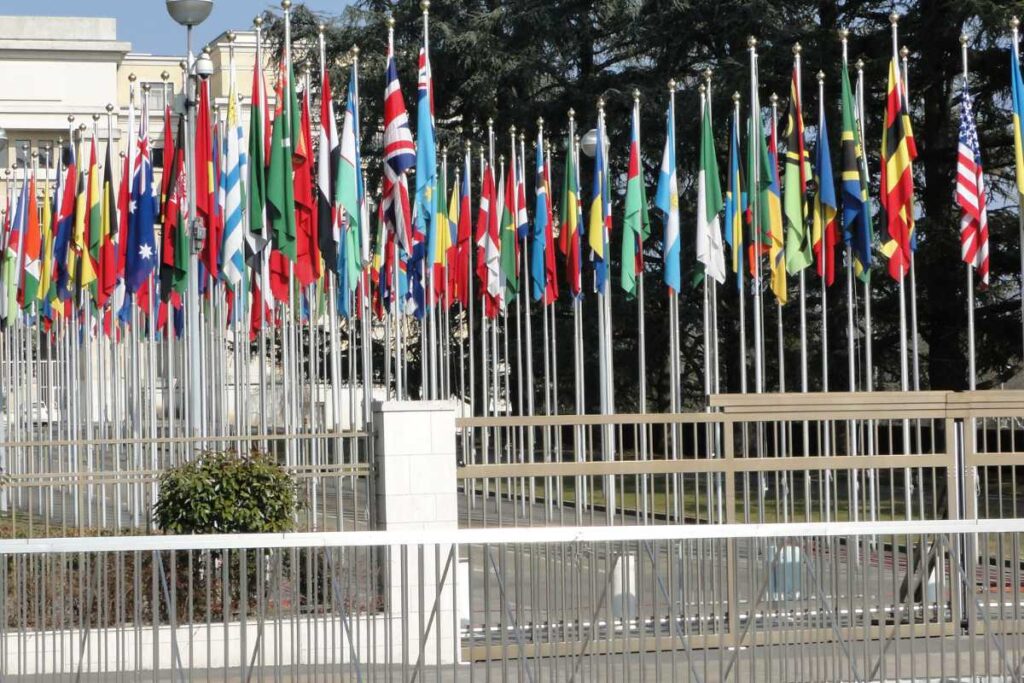
Herbs, with their long history of use as both culinary delights and medicinal aids, have captivated cultures around the world. Each country boasts a unique array of herbs, characterized by distinct flavors and diverse uses.
Their great importance in various cuisines and traditional remedies has led to their widespread cultivation and importation across the globe. Exploring the richness of herbs in different countries unveils a fascinating world of botanical wonders waiting to be discovered.
From the aromatic sage in Mediterranean cuisine to the refreshing mint used in Middle Eastern dishes, herbs play a crucial role as flavor-enhancing ingredients in countless recipes. Moreover, their medicinal properties have been recognized by comparative authorities in herbal supplements and alternative medicine practices.
The abundance of resources and inheritance from nature’s kingdom make certain countries particularly rich in herbs, making them go-to destinations for herb enthusiasts seeking unparalleled variety.
Get ready to embark on a journey through the vibrant world of herbs that will leave you amazed at the diversity our planet offers.
Tired of struggling with outdoor herb gardens in unpredictable weather? Discover the secret to successful herbal gardening indoors and enjoy fresh herbs year-round. Check out our article now!
Botanical Basis: Exploring Global Herb Diversity
The planet’s varied climates and ecosystems contribute to the vast diversity of herbs found worldwide. From rainforests to deserts, every region offers a distinct array of indigenous herbs.
Factors such as soil composition, sunlight exposure, and temperature influence herb growth patterns globally. Understanding the botanical basis behind herb diversity helps appreciate their cultural importance.
Herbs are an essential part of traditional medicine practices in many countries around the world. These medicinal plants have been used for centuries to treat various ailments and promote overall well-being.
The rich biodiversity of plant species plays a crucial role in providing diverse options for herbal remedies.
In regions with tropical rainforests like the Amazon, one can find an abundance of medicinal plant resources. The dense vegetation and high humidity create a perfect environment for numerous herbal species to thrive.
Traditional healers in these areas have deep knowledge about the healing properties of different plants and use them to prepare herbal preparations.
On the other hand, arid regions such as deserts also boast their own unique selection of medicinal plants. These hardy herbs have adapted to survive extreme temperatures and scarce water resources.
Their resilience makes them valuable resources for local communities who rely on them for their medicinal needs.
Soil composition is another critical factor that influences herb diversity across different countries. Certain plants require specific nutrients present in the soil to grow optimally.
For example, some herbs thrive in acidic soils, while others prefer alkaline or loamy soils. This variation in soil types contributes to the wide range of herbal ingredients available globally.
Sunlight exposure is yet another determining factor for herb growth patterns worldwide. Some herbs flourish under direct sunlight, while others prefer shaded areas or partial sun exposure. This preference dictates where these plants can be found naturally and influences cultivation practices when growing them commercially.
Temperature also plays a significant role in shaping herb diversity around the world. Different plant species have specific temperature requirements for germination, growth, and flowering. This is why certain herbs are more commonly found in colder climates, while others thrive in warmer regions.
The cultural importance of herbs cannot be overstated. They have been used for centuries as herbal teas, herbal products, and herbal supplements to promote health and well-being.
The herbal industry relies on the availability of diverse plant resources to create a wide range of products that cater to various needs.
Understanding the botanical basis behind herb diversity allows us to appreciate the interconnectedness between plants and their environment. It highlights the significance of preserving natural habitats and promoting sustainable practices in harvesting medicinal materials.
By valuing and protecting our planet’s rich botanical heritage, we can continue benefiting from the vast array of herbs that nature has bestowed upon us.
Europe’s Demand for Spices and Herbs
European cuisine has long been known for its vibrant flavors, and a key ingredient in achieving these tastes is the extensive use of spices and herbs. From the delicate aroma of coriander to the subtle heat of ginger, European chefs have mastered the art of enhancing their traditional dishes with a wide array of seasonings.
This demand for high-quality spices and herbs has not only shaped European culinary practices but also fostered extensive trade networks between Europe and other regions.
In recent years, there has been a growing preference among European consumers for organic and sustainably sourced herbs. As people become more conscious about their health and the environment, they are seeking out fresh herbs that are free from harmful chemicals.
The popularity of organic spices has given rise to specialized markets where consumers can find a wide variety of culinary herbs that meet their specific preferences.
Europe’s love affair with spices dates back centuries, with historical records documenting the spice trade routes that connected the continent to Asia, Africa, and beyond. These trade networks allowed Europeans to access exotic ingredients such as pepper, cardamom, fennel, and tarragon.
The spice trade not only enriched European palates but also played a significant role in shaping cultural practices. Spices were highly valued commodities that symbolized wealth and power during ancient times.
The herb market in Europe continues to thrive today as consumers seek out fresh herbs for both culinary and wellness purposes. Essential oils derived from rosemary or parsley are used in aromatherapy treatments due to their soothing properties.
Curcuma, commonly known as turmeric, is prized for its anti-inflammatory benefits. Europeans have recognized the value of these natural remedies for centuries and continue to incorporate them into their daily lives.
Europe remains one of the largest markets globally due to its diverse culinary traditions. From Mediterranean countries like Italy and Greece to Northern European nations like Germany and the United Kingdom, each region has its own unique herb preferences. For instance, rosemary is a staple in Mediterranean cuisine, while dill is favored in Northern European dishes.
European countries’ rich history of incorporating spices and herbs into their cultural practices can be seen in traditional festivals and celebrations. For example, the annual Herbs and Spices Festival in France showcases the country’s culinary heritage through various cooking demonstrations and tastings.
These events not only celebrate the flavors but also serve as a reminder of the importance of spices and herbs in European culture.
The Netherlands: Major Player in European Herb Trade
The Netherlands, with its strategic location, plays a vital role as a major player in the European herb trade. This small country serves as a hub for importing, exporting, and distributing herbs throughout Europe, making it an important supplier in the industry.
Dutch companies have established themselves as experts in cultivating high-quality fresh herbs. They employ advanced agricultural techniques to produce niche vegetables like dill and nutmeg that are highly sought after by consumers and businesses alike.
These Dutch herb growers have honed their skills over the years, perfecting their craft to deliver exceptional products.
One of the key reasons why the Netherlands has become a main supplier of herbs is its efficient logistics infrastructure.
With well-connected transportation networks and streamlined processes, Dutch companies can ensure timely delivery of fresh herbs across Europe. This reliability is crucial for meeting market demands and maintaining customer satisfaction.
In addition to their logistical prowess, Dutch herb growers also prioritize quality standards. They adhere to strict regulations and guidelines to ensure that their products meet the highest standards of freshness and purity.
By doing so, they guarantee consistent supply to fulfill the needs of various industries such as the beverage industry where herbs are used extensively.
The Netherlands’ commitment to fair trade practices further solidifies its position as a major player in the European herb trade. Many Dutch herb growers actively participate in fairtrade initiatives that promote ethical sourcing and sustainable farming methods.
By supporting these initiatives, they contribute to creating a more equitable global marketplace while providing consumers with responsibly produced herbs.
Dutch producers excel due to their expertise in cultivation techniques tailored for each crop’s unique requirements.
Their knowledge and experience allow them to grow these herbs with exceptional flavor profiles that cater specifically to culinary needs or even pharmaceutical applications.
China-ASEAN Traditional Medicine Exchanges
China plays a significant role in traditional medicine practices involving herbal remedies within the ASEAN region. The rich history and extensive knowledge of Traditional Chinese Medicine (TCM) have made China a leading nation in the field of herbal medicine.
Traditional Chinese Medicine utilizes numerous indigenous Chinese herbs renowned for their healing properties.
These herbs have been used for centuries to treat various diseases and ailments, ranging from common colds to chronic conditions. With its holistic approach to healthcare, TCM focuses not only on treating symptoms but also on addressing the root causes of illnesses.
Collaborations between China and ASEAN nations facilitate knowledge sharing and trade of traditional medicinal herbs. Through cooperative efforts, both parties exchange expertise, research findings, and best practices in utilizing herbs for medicinal purposes.
This cooperation has paved the way for advancements in traditional medicine and has contributed to improved healthcare outcomes across the region.
Chinese herbal medicine is gaining popularity in ASEAN countries due to its holistic approach to healthcare.
As people become more conscious about their well-being, they are increasingly turning towards alternative forms of treatment that focus on natural remedies rather than relying solely on modern pharmaceuticals. TCM offers an alternative solution that aligns with this growing trend.
The trade of medicinal herbs between China and ASEAN countries has witnessed significant growth over the years. Increasing demand for Chinese herbs has led to a thriving market where these valuable resources are traded for various purposes such as manufacturing herbal supplements or producing traditional medicines locally.
Spain: Potential Market for Moroccan Growers
Spain’s proximity to Morocco makes it an ideal market for Moroccan herb growers. With just a short distance separating the two countries, transportation costs are minimized, allowing for efficient and cost-effective trade between suppliers in Morocco and buyers in Spain.
This geographical advantage opens up numerous opportunities for Moroccan growers to tap into the Spanish market and expand their reach.
One key factor that contributes to the success of Moroccan herbs in Spain is the appreciation of Spanish consumers for the unique flavors and aromas these herbs bring to their cuisine. Spanish dishes often incorporate a wide variety of herbs, and the addition of Moroccan herbs adds an exotic touch that appeals to local taste buds.
The demand for organic and exotic herbs is on the rise in Spain, presenting a lucrative opportunity for Moroccan growers to capitalize on this trend and increase their market share.
Cultural ties between Spain and Morocco further strengthen the trade relationship in the herb industry. The historical connections between these two countries have fostered mutual understanding and trust, creating a favorable environment for business collaborations.
Moroccan growers can leverage these cultural ties to establish strong partnerships with Spanish companies, leading to increased sales and growth opportunities.
In recent years, there has been a growing interest among Spanish consumers in using natural products in their daily lives. This shift towards healthier alternatives has resulted in an increased demand for herbal remedies, cosmetics, and other finished products derived from herbs.
Moroccan growers who obtain marketing authorization can take advantage of this trend by supplying high-quality raw materials to Spanish companies involved in the production of herbal goods.
Moroccan growers must also consider logistics such as port accessibility and road infrastructure. Ensuring smooth transportation routes is crucial for timely delivery of fresh herbs while maintaining their quality.
By establishing reliable supply chains that connect Moroccan farms with distribution centers or directly with retailers across Spain, growers can meet customer demands efficiently.
To successfully enter the Spanish market, company registration and compliance with local regulations are essential. Moroccan growers must familiarize themselves with the legal requirements for importing and selling herbs in Spain.
This includes obtaining necessary permits, adhering to quality standards, and complying with labeling regulations. By meeting these obligations, Moroccan growers can establish a trustworthy reputation and gain the confidence of Spanish buyers.
Thailand’s Growing Market for Traditional Medicine
Thailand has long been known for its rich cultural heritage, and this extends to its traditional medicine practices. Traditional Thai medicine heavily relies on a wide range of indigenous herbs with therapeutic properties.
These herbs are an integral part of the country’s healthcare system and have been used for centuries to treat various ailments.
In recent years, there has been a growing interest in wellness practices worldwide, and Thailand is no exception. The demand for traditional herbal remedies has surged as people seek alternative ways to maintain their health and well-being. This trend has created a thriving market for traditional medicines in the country.
Recognizing the potential of this market, the Thai government has implemented initiatives to promote research, development, and commercialization of traditional medicinal herbs.
These efforts aim to ensure that the benefits of these herbs are not lost in modern times and that they continue to contribute to the well-being of the population.
The Thai market offers significant growth opportunities for both local herb producers and international suppliers.
With increasing consumer awareness about the potential side effects of modern medicines, many individuals are turning towards natural alternatives like herbal remedies.
This shift in consumer preferences creates a favorable environment for businesses involved in the production and distribution of herbal medicines.
Moreover, Thailand’s organic market is also experiencing rapid growth. As consumers become more conscious about what they put into their bodies, there is an increasing demand for organic dietary supplements derived from traditional medicinal herbs.
This presents an excellent opportunity for entrepreneurs looking to tap into this niche market.
The marketing potential for traditional medicine in Thailand is immense due to its historical significance and cultural value.
Tourists visiting Thailand often seek out authentic experiences related to traditional practices, including trying out herbal treatments or purchasing herbal products as souvenirs. Therefore, businesses operating within this sector can benefit from both domestic and international markets.
Furthermore, it is worth noting that while modern medicine has undoubtedly made significant advancements, there is still a place for traditional medicine in today’s healthcare landscape. Traditional medicines can complement modern treatments and offer a holistic approach to health and wellness.
Unveiling Herb-Rich Countries
In exploring the global herb diversity, several countries have emerged as major players in the herb trade. Europe, with its high demand for spices and herbs, has seen countries like the Netherlands become significant contributors to the industry.
The Netherlands has established itself as a key hub in European herb trade, facilitating the distribution of herbs throughout the continent.
China-ASEAN Traditional Medicine Exchanges have also played a crucial role in promoting herbal practices and knowledge sharing among participating countries.
Meanwhile, Spain presents an interesting market for Moroccan growers due to its potential demand for herbs. Thailand has witnessed a growing market for traditional medicine, creating opportunities for both local and international herb suppliers.
To delve deeper into these fascinating insights on herb-rich countries and their contributions to the global market, continue reading our blog post. Discover how these nations are shaping the industry and explore potential business prospects that may arise from their unique herbal landscapes.
FAQs
Are all herbs safe for consumption?
While many herbs are safe for consumption when used appropriately, it is essential to exercise caution. Some herbs can interact with medications or cause adverse reactions in certain individuals. It is advisable to consult with a healthcare professional or herbalist before using any new herbs or herbal products.
How can I incorporate more herbs into my diet?
There are numerous ways to include more herbs in your diet. You can try adding fresh herbs like basil or cilantro to salads or using dried herbs like oregano or thyme when cooking meals. Herbal teas are another popular option for enjoying the benefits of various herbs.
Can I grow my own herbs at home?
Yes! Growing your own herbs at home is a wonderful way to have easy access to fresh ingredients while saving money. Many common culinary herbs such as basil, rosemary, and mint can be grown indoors or outdoors with minimal effort.
Are organic herbs better than conventionally grown ones?
Organic herbs are grown without the use of synthetic pesticides or fertilizers, which some people prefer for health and environmental reasons. However, both organic and conventionally grown herbs can be safe and nutritious. It ultimately depends on personal preferences and priorities.
Where can I purchase high-quality herbs?
You can find high-quality herbs at various places such as local health food stores, specialty herb shops, and reputable online retailers. It is important to ensure that the supplier follows good manufacturing practices and sources their herbs from reliable sources.

